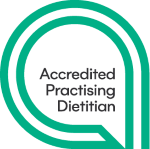- Eating disorders are increasingly common, with approximately 1 million Australians experiencing an eating disorder in any given year1.
- Eating disorders, when combined with disordered eatinga, can affect 16.3% of Australians1.
- Eating disorders and disordered eating impact people of any age, gender, socioeconomic group, culture, ethnicity, body shape and size, gender identity or sexual identity.
- Individuals with disordered eating or an eating disorder can experience significant psychological, nutritional and physical health consequences2. These can be potentially life-threatening3.
- Recovery is possible. You can get help for yourself or someone you care about. Early intervention and treatment are essential to the recovery process.
aSub-clinical eating disorder behaviours (for example, disordered eating) include the signs and symptoms of an eating disorder but may not meet the full criteria for diagnosis.
4 minute read
What is an eating disorder?
Eating disorders are serious psychiatric disorders, and include:
- anorexia (anorexia nervosa)
- bulimia (bulimia nervosa)
- binge-eating disorder (BED)
- avoidant restrictive food intake disorder (ARFID)
- other eating and feeding disorders (OSFED).
Eating disorders are diagnosed by a mental health professional such as a clinical psychologist or medical professional (for example a GP, psychiatrist or paediatrician).
Eating disorders are defined by disordered attitudes, thoughts and behaviours towards food, eating, weight or body shape, that impair an individual’s functioning and quality of life4.
If left untreated, eating disorders or disordered eating can have a seriously negative impact on all areas of your life. They can impact you physically and emotionally, and also affect your ability to study or work and to engage socially.
The impact of an eating disorder is often felt by the entire family and circle of support. They may lead to caregiver stress, loss of family income, disruption of family relationships and a high suicide risk.
Many people with eating disorders can look healthy but are actually very unwell. Anyone can experience an eating disorder or disordered eating - all genders, ages, races, ethnicities, body shapes and sizes, sexual orientation and socioeconomic statuses.
While genetics can play a role in the development of these illnesses, there may be other underlying factors, including:
- depression
- anxiety disorders
- personality disorders
- substance abuse problems.
Environmental factors, like social pressures and social media, can add to the development of an eating disorder.
Eating disorders or disordered eating can also arise to cope with stress and difficulties in your life. They may help as a distraction, a sense of accomplishment, to feel in control, or numb emotions. They can also form a part of a person’s sense of self.
For the LGBTQIA+ community, research has shown that adults and adolescents experience a greater incidence of eating disorders and disordered eating than their cisgender and/ or heterosexual peers.4
Eating Disorders are also overrepresented in neurodivergent people, including autism, attention deficit hyperactivity disorder (ADHD), intellectual disability, giftedness, and Tourette’s Syndrome.5
- Are you or your loved one experiencing these behavioural signs?
-
- Repetitive dieting, calorie counting, obsessive food label reading, skipping meals.
- Binge-eating (for example, regularly eating an unusually large amount of food in one sitting), feelings of being out of control with food.
- Regular vomiting/purging or misuse of laxatives (for example, visiting the bathroom soon after meals), misuse of appetite suppressants, enemas and diuretics.
- Denying hunger or refusing to eat when hungry.
- Radical changes in food preferences, such as refusing to eat certain foods or food groups, or claiming to suddenly dislike foods.
- Developing obsessive rituals around food and food preparation, like only eating at a certain time.
- Preoccupation with preparing food for others, recipes and nutrition.
- Seeing foods as good or bad, healthy or unhealthy.
- Secretly throwing out food or eating in secret.
- Eating very slowly, playing with food and tearing it into pieces.
- Avoiding certain textures of food and/or ‘fussy eating’ particularly for children that do not improve as they become older.
- Obsession around ‘healthy’ or ‘clean’ eating.
- Avoiding social situations involving food.
- Creating excuses to avoid family/social meals, like claiming an intolerance to certain foods.
- Excessive or compulsive exercise.
- Are you or your loved one experiencing these physical signs?
-
- Weight fluctuations, including weight loss which can be rapid, persistent low weight or weight gain.
- Feeling cold most of the time, even in warm weather.
- Loss or disturbance of menstrual periods and decreased libido (sex drive).
- Fainting or dizziness, poor concentration.
- Feeling bloated, constipated, gastrointestinal discomfort.
- Ongoing fatigue and exhaustion.
- Poor sleep.
- Lethargy or low energy levels.
- Fine hair appearing on face and/or body.
- In the case of frequent vomiting, damage to the teeth, fingers/knuckles and swelling of the face.
- Blood in vomit.

- Are you or your loved one experiencing these psychological signs?
-
- Denial of any issues.
- Overwhelming, intense fear of weight gain.
- Preoccupation with minimising body fat levels, ‘bulking up’ or becoming more muscular.
- Preoccupation with eating, food, body shape, appearance, and weight.
- Anxiety/irritability around food and mealtimes.
- Negative body image, or distorted body image.
- Sensitivity to comments about body shape, eating or exercise.
- Body-checking behaviours, like regular weighing, pinching waist, analysing reflection in the mirror.
- Depression and anxiety.
- Low self-esteem and feelings of guilt, shame and self-loathing, particularly after eating.
- Feeling out of control with food and eating.
- Impaired concentration and decision-making.
- ‘Black and white’ or rigid thinking.
- Social withdrawal.
- Perfectionism.
What should I do?
The signs and symptoms of an eating disorder or disordered eating can be missed. Even by close family and friends. A person with an eating disorder or disordered eating may experience shame, anxiety, embarrassment, isolation, secrecy, guilt or denial about their behaviours.
If you or someone you know has the signs and symptoms of an eating disorder or disordered eating, seek professional help. Sometimes thinking about accessing professional help or talking about this can be difficult.
- Please consider learning more about eating disorders.
- If you are approaching a loved one with any concerns, have the conversation in a safe and comfortable environment.
- Be compassionate, non-judgemental, and respectful.
Where to get help
If you’re worried about your own eating habits, or those of someone you care about, there are many places you can get help and support. It is possible to make a full recovery from an eating disorder. Acting earlier on any concerns will help you or your loved one in recovery.
Your GP can help with an Eating Disorder Care Plan. This plan gives the support you need for recovery. On this plan you can access up to 40 psychological treatment services and up to 20 dietetic visits each year, subsidised by Medicare. Please note there may be a gap payment.
To find out if you’re eligible for an Eating Disorder Care Plan, please speak with your GP or medical professional.
Working with a clinical psychologist or mental health professional is also a critical step in healing. Find a mental health professional on HealthDirect.
There may also be publicly funded treatment options available depending on where you live.

We recommend seeing an Accredited Practising Dietitian (APD) if you:
- are demonstrating any of the signs and symptoms on this page
- are struggling with disordered eating or consumed with thoughts about your eating patterns
- are experiencing confusion regarding your relationship with food and/or your body
- need nutritional advice to help you understand your personal needs
- want support to help you achieve a healthy, positive relationship with food and your body.
APDs are university-trained nutrition experts. They can help you with personalised, easy-to-follow evidence-based advice.
APDs are Australia's most trusted dietetics professionals.
Some APDs are also credentialed by the Australia & New Zealand Academy of Eating Disorders (ANZAED).
- Don't hesitate to seek support if you feel you're consumed by thoughts about food or your diet.
- If you or a loved one are demonstrating any of the signs and symptoms of an eating disorder or have any concerns about your physical and/or mental health, seek immediate help. This can be done by calling 000 or going to your nearest hospital emergency department. You can also contact Lifeline on 13 11 14.